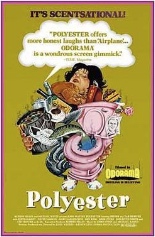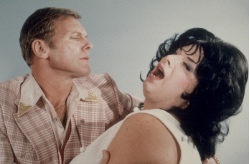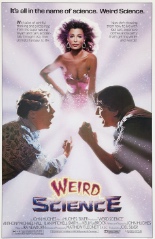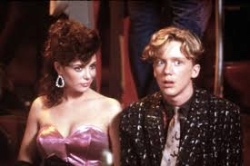
 Dubbed an “anti-hate satire,” Jojo Rabbit starts off strong enough, with our hero (?) Jojo (Roman Griffin Davis) on his way to a Hitler Youth camp, the strains of The Beatles’ Germanic variation of “I Want to Hold Your Hand” on the soundtrack. After that somewhat enthusiastic intro, however, the film starts its downhill slide into pointed mediocrity, one from which it never fully recovers.
Dubbed an “anti-hate satire,” Jojo Rabbit starts off strong enough, with our hero (?) Jojo (Roman Griffin Davis) on his way to a Hitler Youth camp, the strains of The Beatles’ Germanic variation of “I Want to Hold Your Hand” on the soundtrack. After that somewhat enthusiastic intro, however, the film starts its downhill slide into pointed mediocrity, one from which it never fully recovers.
I guess what I’m saying is that, fully based on Taika Waititi’s comedic output, I fully expected to love Jojo Rabbit, but ended up shrugging my shoulders in a very Teutonic “meh.”
Young Jojo wants to be a good Nazi, so much so that Hitler himself is his goose-stepping imaginary friend. Attending the camp — with a mildly surprising array of guest stars including Sam Rockwell and Rebel Wilson, acting their broadest — Jojo is ostracized harshly because he won’t defend German ideals by snapping the neck of a rabbit.
 Despite this, he does his best to conform to der Führer’s rule of law, one that gets a slight bit harder to do when he discovers that his mother (Scarlett Johansson) has been hiding a young Jewish girl in his deceased sister’s room. Jojo does his best to serve the cause while maintaining a tenuous friendship with the girl, mostly succeeding.
Despite this, he does his best to conform to der Führer’s rule of law, one that gets a slight bit harder to do when he discovers that his mother (Scarlett Johansson) has been hiding a young Jewish girl in his deceased sister’s room. Jojo does his best to serve the cause while maintaining a tenuous friendship with the girl, mostly succeeding.
While Waititi’s film is full of many comfortable laughs masquerading as uncomfortable jokes, the film eventually breaks with the dark-comedy aspect all together, oftentimes threatening to topple over on its own self-imposed self-importance.
 While Davis is serviceable as young Jojo, Waititi is at his comical best as the faux Hitler, speaking with anachronistic beatnik phrasings, getting gentle guffaws out of his imposing terribleness. Perhaps, though, it’s the casting of chubby little Archie Yates as Jojo’s pal Yorki as the surprising comedic presence that gets the film’s continually funniest scenes.
While Davis is serviceable as young Jojo, Waititi is at his comical best as the faux Hitler, speaking with anachronistic beatnik phrasings, getting gentle guffaws out of his imposing terribleness. Perhaps, though, it’s the casting of chubby little Archie Yates as Jojo’s pal Yorki as the surprising comedic presence that gets the film’s continually funniest scenes.
That being said, Jojo Rabbit is still worth a viewing, granted that you know what a disjointed book-burning of a movie you’re going into; it’s not angry enough to be a dark comedy and too silly to be a truly moving experience. —Louis Fowler






 The tribulations that Brittany goes through to get to the marathon, from dealing with random food binges to mysterious leg pains to an Instagram roommate who tells her she be fat again soon, is an earnest account of an unhealthy person trying to change not only her outer self, but her inner self as well. That being said, it is also dramatically funny at times when it doesn’t intrinsically hurt.
The tribulations that Brittany goes through to get to the marathon, from dealing with random food binges to mysterious leg pains to an Instagram roommate who tells her she be fat again soon, is an earnest account of an unhealthy person trying to change not only her outer self, but her inner self as well. That being said, it is also dramatically funny at times when it doesn’t intrinsically hurt.
